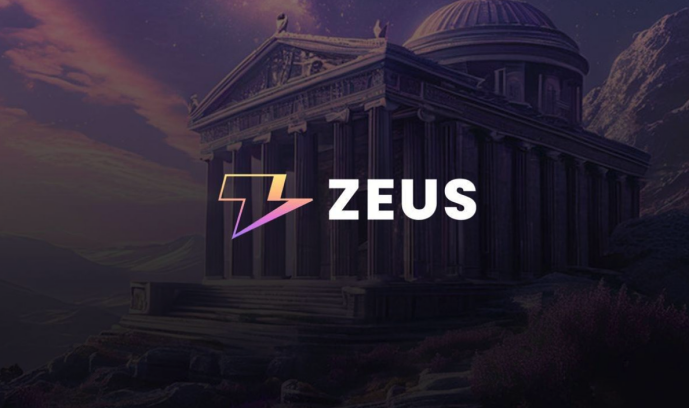
In today's rapidly developing blockchain technology, Zeus Node, as a unique verification mechanism, is gradually attracting more and more attention. Its decentralized, permissionless group model makes Zeus Network’s verification process stand in sharp contrast to traditional federated notarization systems. This article will take an in-depth look at how the Zeus Node works, its components, and its importance in the blockchain ecosystem.
Verification mechanism of Zeus node
The verification process of Zeus Network adopts a decentralized design concept, and each participant can become a verifier by running a node. In order to maintain private keys and signature functions, individuals must have the appropriate technical capabilities and resources. The first step to becoming a validator is to stake $ZEUS tokens, not only to participate in the proof-of-stake (PoS) consensus mechanism, but also to support the operation of the two-way peg (2WP) mechanism.
Before participating in verification, stakers must also complete registration on the verifier registration process. The design of this process ensures the security of the system, using an over-collateralization strategy to enhance the robustness and resilience of the verification system. In addition, the system also addresses potential vulnerabilities through financial reduction measures, further enhancing the reliability of the overall security framework.
Components of Zeus Node
The Zeus Node system consists of multiple indispensable components that work together to achieve efficient verification and data transfer. The main components include:
Point-to-point network: ensures direct communication between nodes, improving the speed and security of data transmission.
Broadcast service: used to disseminate transaction information and verification results on the network to ensure that all nodes can obtain the latest data in a timely manner.
Signature function: It has signature aggregation capabilities, which can effectively reduce the burden of on-chain transactions and improve the efficiency of the system.
In addition, Zeus Node also provides a dual-function registration service that can operate on and off the chain, which provides users with more flexibility and choices.
System scalability and adaptability
In order to respond to changing market demands, the scalability and adaptability of the Zeus node system are particularly important. Potential modifications include:
Implement alternative signature algorithms: Improve system security and performance by introducing new signature algorithms.
Integrated broadcast service adapter: supports different blockchains such as Bitcoin Layer 2, EVM, MoveVM, etc. to enhance system interoperability.
Use multiple programming languages: such as Solidity, Move, etc. to develop on-chain registration programs or smart contracts to further enrich the system's functions.
These improvements not only improve the flexibility of the Zeus node, but also enable it to seamlessly connect with other blockchain ecosystems to achieve effective sharing of resources.
The importance of Zeus nodes in the blockchain ecosystem
The design and implementation of Zeus nodes provide a highly efficient and secure verification mechanism for the blockchain ecosystem. Its decentralized nature allows anyone to participate in the network, promoting fairness and transparency. At the same time, the introduction of the pledge mechanism not only stimulates users' enthusiasm for participation, but also enhances the security of the network.
In the current context of the continuous evolution of blockchain technology, the multi-functional features and scalability of Zeus nodes ensure future development potential. As more and more blockchain projects begin to focus on interoperability, Zeus nodes will undoubtedly become an important bridge connecting different ecosystems.
in conclusion
As an innovative blockchain verification mechanism, Zeus Node's decentralized, permissionless design concept has injected new vitality into the blockchain ecosystem. By staking $ZEUS tokens, participating in validator registration and other steps, users can not only participate in the governance of the network, but also enjoy corresponding economic benefits.
In the future, as blockchain technology continues to evolve, the flexibility and adaptability of Zeus nodes will enable it to play an important role in a wider range of application scenarios. Whether it is financial services, supply chain management or digital identity verification, Zeus Node will provide a solid foundation for the development of blockchain.
Through an in-depth understanding of Zeus nodes, we can foresee its important position in the future development of blockchain technology.